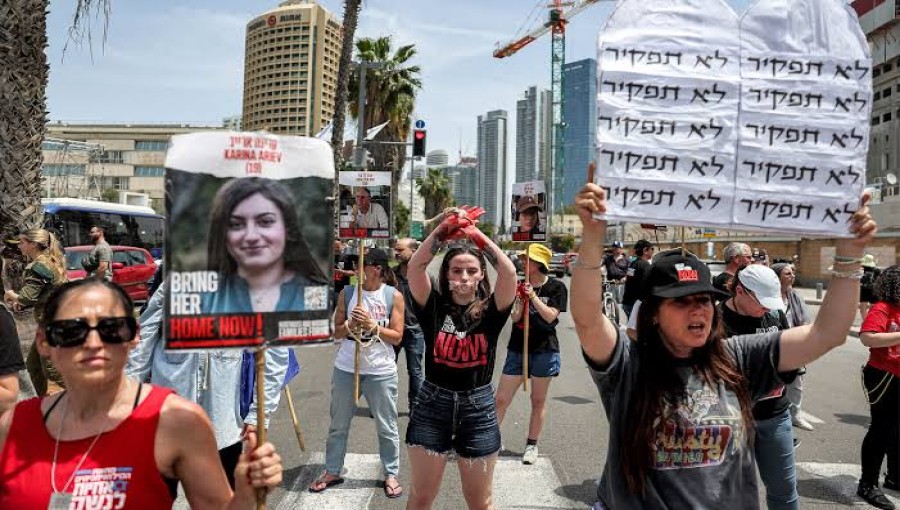Thousands of Israelis took to the streets in Tel Aviv on Saturday night, demanding swift action to secure the release of hostages held by the Palestinian armed group Hamas. The protest, marked by anti-war chants, reflects mounting domestic pressure on Israeli Prime Minister Benjamin Netanyahu to resolve the ongoing conflict in Gaza.
According to BBC news, protesters criticized Netanyahu for allegedly prolonging the conflict and called for immediate efforts to bring the hostages home. Meanwhile, a Hamas delegation arrived in Egypt for talks with mediators, signaling a potential breakthrough in negotiations.
However, despite Saturday's discussions, Hamas reported no significant progress in the talks. Yet, both sides have agreed to resume negotiations on Sunday, mediated by Egypt and Qatar. The central point of contention remains the terms of the deal, with disagreement over whether it should be temporary or permanent.
One proposed deal on the table involves a 40-day ceasefire in Gaza, coupled with the release of Palestinian prisoners held in Israeli jails in exchange for the return of Israeli hostages held by Hamas. Hamas insists that any agreement must explicitly include the withdrawal of Israeli troops from Gaza and a complete cessation of hostilities.
In response, Israeli minister Amichai Chikli told the BBC that the conflict would persist until Hamas is eliminated, emphasizing Israel's readiness to engage in a deal that ends the war or withdraws troops without a full-scale operation in Rafah.
The protests in Tel Aviv underscore the growing urgency for a resolution, as public pressure mounts on the Netanyahu government. Natalie Eldor, an Israeli protester, emphasized the importance of bringing back all hostages, alive or deceased, or else called for a change in government.
Meanwhile, Israeli Wartime Cabinet Minister Benny Gantz clarified that while there is no official outline yet, discussions on a potential ceasefire deal are ongoing. The War Cabinet will convene to deliberate once an agreement is reached.
The situation remains fluid as negotiations continue, with both sides seeking to find common ground amidst escalating tensions and public outcry for a resolution.





























Comment: